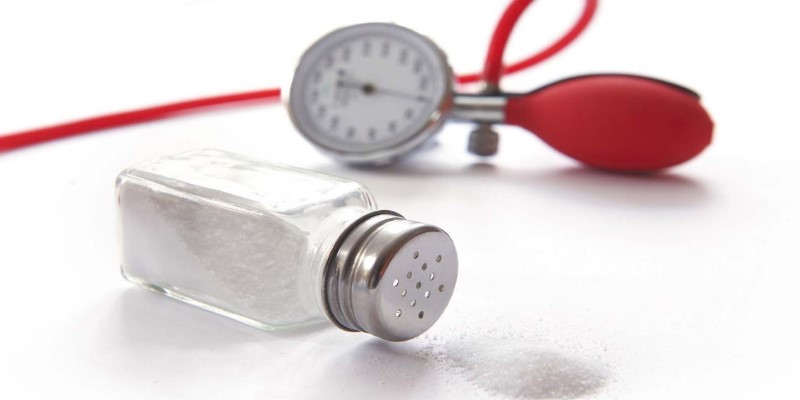High blood pressure, or hypertension, is a common health issue affecting millions of people worldwide. The link between excessive sodium intake and high blood pressure has been well-established for decades. Sodium, primarily found in table salt, can lead to increased blood pressure by causing the body to retain water, putting added stress on blood vessels and the heart.
Recent studies suggest that using a salt substitute can drastically lower the risk of developing high blood pressure. These substitutes, often made with potassium chloride, provide a similar flavor profile to salt without the same health risks. In this article, we'll explore the details of how salt substitutes work, the benefits of reducing sodium intake, and how using alternatives can help manage and even prevent high blood pressure.
Sodium plays a vital role in balancing fluids in the body, helping muscles contract, and transmitting nerve impulses. However, when consumed in excess, sodium disrupts this balance, leading to water retention. This increases the volume of blood circulating through the body, which raises the pressure exerted on the walls of blood vessels. Over time, consistently high blood pressure can damage arteries, leading to cardiovascular issues such as heart disease, strokes, and kidney failure.
The average person often consumes far more sodium than the body requires, primarily through processed foods and regular table salt. The World Health Organization (WHO) recommends that adults consume less than 5 grams of salt per day, yet many people far exceed this amount. As a result, hypertension has become a growing concern, with more than one billion people worldwide affected by the condition in 2024.
Salt substitutes are alternatives to traditional table salt (sodium chloride), commonly made from potassium chloride. These products are designed to mimic the flavor of salt while significantly reducing the sodium content. Potassium chloride not only helps maintain electrolyte balance but also counteracts the effects of sodium on blood pressure. This makes it an ideal choice for people looking to reduce their sodium intake without sacrificing taste.

Some salt substitutes include magnesium or calcium in addition to potassium chloride to enhance flavor and provide additional health benefits. These alternatives offer a similar salty taste, although some users report a slightly bitter aftertaste due to the potassium content. Despite this minor drawback, salt substitutes are an effective way to lower sodium consumption, which can have a major impact on overall heart health.
Potassium is a crucial mineral that plays a significant role in managing blood pressure. It works by balancing the effects of sodium, helping to relax the walls of blood vessels, and reducing the strain on the cardiovascular system. Potassium is also essential for proper kidney function, as it helps excrete excess sodium from the body.
Research shows that increasing potassium intake through diet or salt substitutes can lead to lower blood pressure levels. This is particularly beneficial for individuals with high blood pressure, as potassium helps neutralize the harmful effects of too much sodium. Foods rich in potassium include bananas, avocados, spinach, and sweet potatoes. However, including a salt substitute can be an easier way to ensure that you're getting enough potassium while cutting down on sodium.
In fact, a 2024 study found that people who used salt substitutes containing potassium chloride experienced a significant reduction in blood pressure compared to those who continued using regular table salt. The researchers concluded that even small reductions in sodium intake could lead to substantial improvements in heart health over time.
Switching from regular salt to a salt substitute can lead to a variety of health benefits, particularly for those at risk of hypertension. By cutting down on sodium and increasing potassium intake, the body is better able to regulate blood pressure levels. Heres how salt substitutes contribute to lowering high blood pressure risk:
The most obvious benefit of salt substitutes is the dramatic reduction in sodium consumption. Since sodium is directly linked to fluid retention and increased blood pressure, lowering its intake can significantly reduce the risk of hypertension.
Potassium chloride-based salt substitutes provide the body with essential potassium, which helps counteract the effects of sodium. Potassium aids in relaxing blood vessels and promoting proper kidney function, both of which help lower blood pressure.

Reducing sodium intake and increasing potassium can ease the burden on the cardiovascular system. Salt substitutes, which are often lower in sodium and higher in potassium, may help lower blood pressure and reduce the risk of heart attacks, strokes, and other heart-related issues. By making these dietary adjustments, you support heart health and decrease the likelihood of serious cardiovascular complications.
Consistently using a salt substitute can lead to long-term improvements in blood pressure and overall heart health. Studies suggest that even small reductions in sodium intake over time can profoundly reduce the risk of hypertension and related complications.
The evidence supporting the use of salt substitutes to reduce the risk of high blood pressure is strong and growing. By cutting back on sodium and increasing potassium intake through products like potassium chloride-based salt substitutes, individuals can significantly improve their heart health and lower their chances of developing hypertension. While salt substitutes aren't a cure-all, they are a simple and effective way to make a meaningful difference in your overall well-being.
Switching to a salt substitute can be a small yet impactful change in your diet, with long-lasting benefits for your cardiovascular system. Consulting with a healthcare provider will ensure that you are using salt substitutes appropriately and safely to achieve the best results.

By Korin Kashtan/Oct 15, 2024

By Sean William/Sep 27, 2024

By Madison Evans/Sep 20, 2024

By Verna Wesley/Oct 03, 2024

By Susan Kelly/Oct 20, 2024

By Korin Kashtan/Sep 20, 2024

By Alison Perry/Sep 20, 2024

By Sid Leonard/Oct 03, 2024

By Sid Leonard/Oct 10, 2024

By Madison Evans/Oct 15, 2024

By Mason Garvey/Oct 16, 2024

By Mason Garvey/Sep 27, 2024